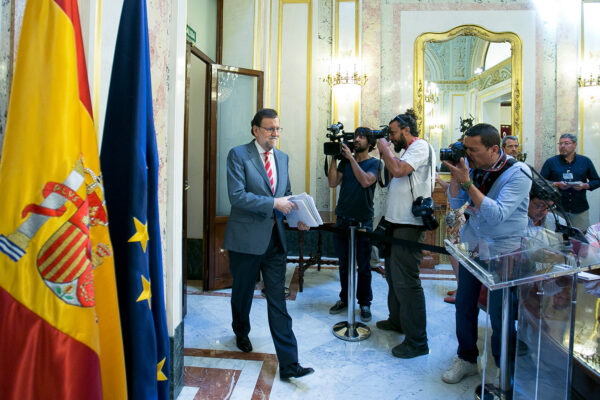
Spain is due to revoke Catalonia’s autonomy after the regional parliament voted for independence. But it could struggle to implement direct rule.
Mariano Rajoy’s government is expected to:
- Order the Catalan government to step down;
- Curtail the powers of the Catalan parliament;
- Put Catalan public media under Spanish supervision; and
- Call regional elections within six months.
The question is if and how he will be able to enforce this.
Trouble ahead
- Catalan president Carles Puigdemont and his cabinet could refuse to step down. Then what will Spain do? Arrest them?
- Active and passive resistance from Catalan officials could make life difficult for Spanish administrators. El País reports that just 9 percent of civil servants in Catalonia work for the national government compared to 16 percent in neighboring Valencia and 19 percent in Andalusia.
- The Catalan News Agency (ACN), Catalunya Ràdio and TV3 have denounced the threat of Spanish control as a “direct attack on the citizens of Catalonia” and a “denial of their right to true, objective, pluralistic, balanced information”.
- The opposition Socialists, whose support Rajoy needs in the national parliament, are bitterly divided. The Catalan branch of the party opposes both independence and direct rule from Madrid.
- Basque nationalists, whose support Rajoy also needs, oppose suspending Catalan home rule altogether.
